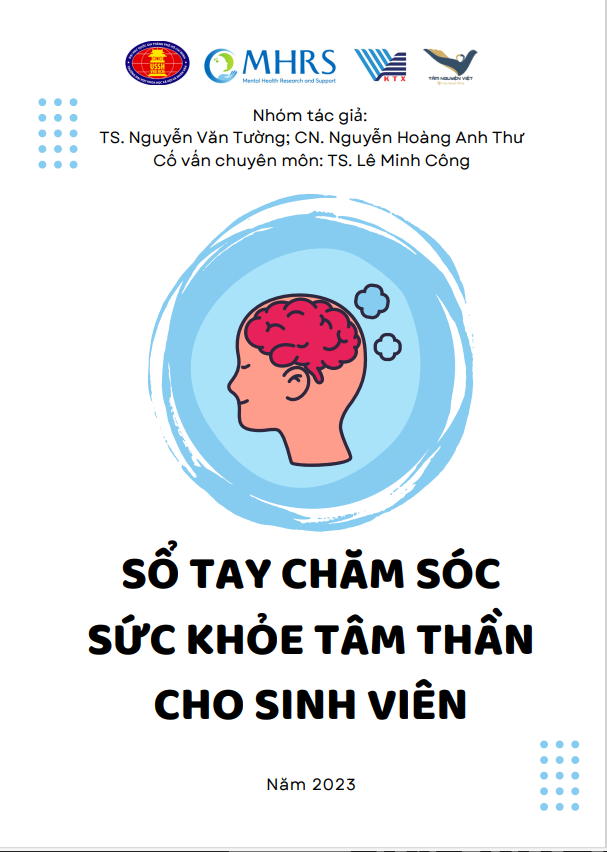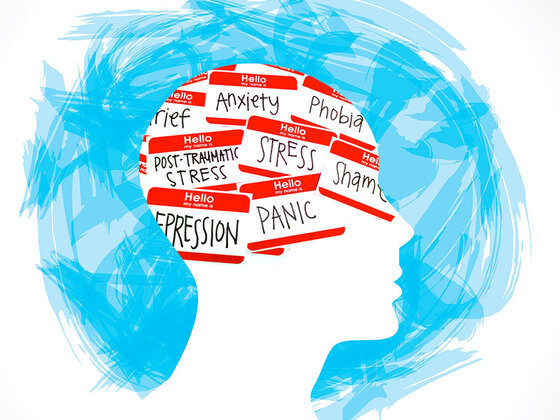Operations
CONTENTS
Mental Health Handbook for Students
The Mental Health Handbook for Students is an innovative resource designed and published by the Center for Mental Health Research and Support at the University of Social Sciences and Humanities (USSH), Vietnam National University Ho Chi Minh City (VNU-HCM). This initiative, part of the "Mental Vaccine" program, aims to provide students with foundational knowledge about mental health challenges and practical strategies for addressing them. It is supported by the Dormitory Management Center at VNU-HCM and the Tam Nguyen Viet Fund.
The handbook equips students to manage their own mental health challenges and offers tools to support peers, making it an indispensable companion in navigating the complexities of modern student life.

- The Scope of Mental Health
According to the handbook, mental health extends beyond the absence of mental disorders. It is a state of emotional equilibrium where individuals recognize their abilities, cope with everyday stress, work productively, and contribute to society. This holistic definition aligns with the World Health Organization's perspective on mental well-being, emphasizing resilience, social harmony, and personal fulfillment.

Risk Factors and Common Challenges
The handbook identifies several key risk factors influencing students' mental health:
- Emotional Isolation – Self-imposed seclusion can exacerbate feelings of loneliness.
- Digital Overuse – Excessive engagement with technology, leading to addictive behaviors.
- Negative Body Image Perceptions – Hormonal and societal pressures compound insecurities among young people.
Other risks are categorized into psychological, educational, physical, lifestyle, social, and financial factors. Addressing these challenges is critical for maintaining mental health and fostering academic success.
Common issues faced by students include fatigue, stress, anxiety, depression, sleep disorders, and even suicidal ideation. For each challenge, the handbook suggests evidence-based coping strategies such as deep breathing, exercise, self-care routines, effective time management, and seeking professional support when needed.

Diagnostic Tools and Methods
The handbook integrates several validated mental health assessment tools:
- DASS-21 – A widely recognized scale for depression, anxiety, and stress (Tran et al., 2013).
- Beck Depression Inventory (BDI) – Used globally to identify depressive symptoms (Bach Mai Hospital, 2022).
- Zung Anxiety Scale (SAS) – A self-rating anxiety assessment (BookingCare, 2022).
Other tools like the Grit Scale, Reid's Learning Style Inventory, and Holland’s Career Interest Assessment provide students with additional insights into their psychological and personal development.
A Sustainable Development Perspective
The Mental Health Handbook for Students contributes directly to Sustainable Development Goal (SDG) 3: Good Health and Well-being. By promoting mental health awareness and support within and beyond the university, the initiative aligns with the United Nations' vision of inclusive education and well-being.
Lac Hong University exemplifies its commitment to sustainable development by disseminating mental health knowledge to its students and those from other institutions through easily accessible online information. By fostering resilience among students, the university ensures a healthier, more capable generation prepared to face global challenges.
Conclusion
The Mental Health Handbook for Students is more than a resource; it is a lifeline for young minds grappling with modern life's demands. By leveraging this tool, students can achieve mental clarity, emotional resilience, and a profound sense of purpose.
For those eager to delve deeper, the complete handbook is available
Conclusion
The Mental Health Handbook for Students is more than a resource; it is a lifeline for young minds grappling with modern life's demands. By leveraging this tool, students can achieve mental clarity, emotional resilience, and a profound sense of purpose.
For those eager to delve deeper, the complete handbook is available here.

